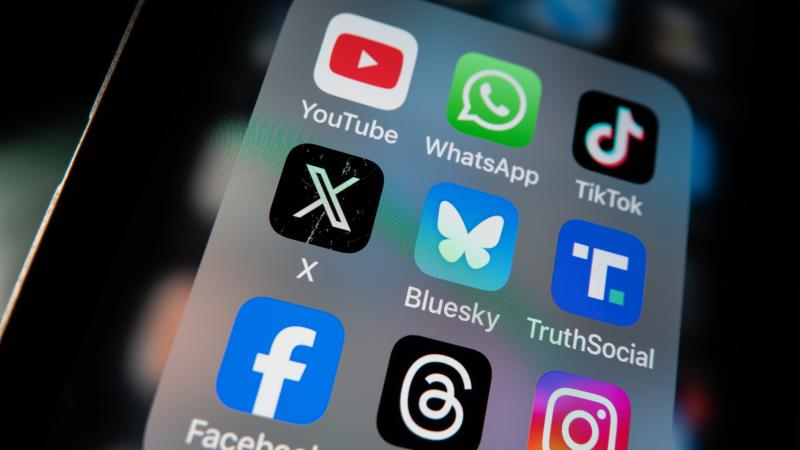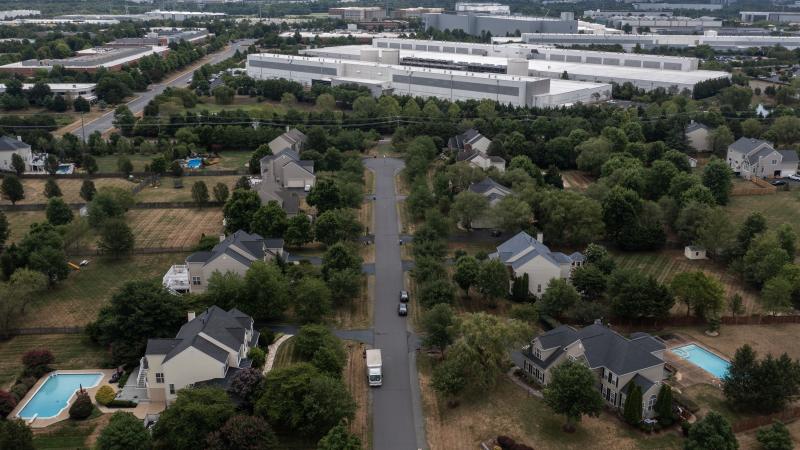Now that Trump’s ahead, media suddenly says the polls are all wrong
Pollsters famously underestimated Trump’s support in 2016, leading to public shock at his Election Night victory over former Secretary of State Hillary Clinton. When Harris was up, mainstream media touted the polls. Now, not so much.
With Trump pulling ahead in the polls, legacy media have rushed to throw cold water on the survey data in a reversal of past election cycles, when Trump supporters have insisted that he would outperform the polls.
Pollsters famously underestimated Trump’s support in 2016, leading to public shock and dismay at his Election Night victory over former Secretary of State Hillary Clinton. In 2020, though they managed to predict the outcome correctly, many legacy pollsters dramatically overstated Biden’s lead and Trump again outperformed expectations.
Now, for the first time, Trump is the favorite to win the White House, both in terms of betting odds and in polling data, though Harris maintains a narrow lead in the nationwide popular vote of 0.8% on average. In the Electoral College, however, he is currently ahead in every major swing state and RealClearPolitics’ no toss ups map projects him to take 312 electoral votes, surpassing his 2016 margin. A candidate needs the vote of at least 270 electors—more than half of all electors—to win the presidential election.
But while legacy outlets were skeptical of the idea that the polls were off due to “hidden Trump voters” in both cycles, they have recently become quite skeptical of polling accuracy, seemingly just as Trump has pulled ahead in most surveys.
But those in Trump's world are confident the data reflects the actual state of the race, which will come down to their final messaging in the remaining two weeks.
“Right now, I think most of the polls are quite accurate,” Trump-aligned pollster John Mclaughlin told Just the News. “It’s very close and it’s gonna be a battle for the next 14 days to see who can turn out their voters.”
Are they overcounting Trump voters?
Over the weekend, a number of legacy outlets ran headlines questioning the scope and even veracity of Trump’s apparent advantage. “GOP-leaning polls trigger questions about accuracy,” read the headline from The Hill. “The Pollsters Blew It in 2020. Will They Be Wrong Again in 2024?” read The Wall Street Journal. “Where are the polls?” asked Politico, taking a slightly different angle and highlighting a drop off in legacy polling data.
The Hill discussed a recent string of “GOP-leaning polls” that it said had “flooded the zone” and potentially skewed public perception of the state of the race. But one analyst sees little impact from the pro-Trump polls.
“When you look across all the averages, the net effect is less than a point, if you take out the Republican polls, or the partisan ones, so to speak,” Decision Desk HQ Data Science Director Scott Tranter said.
New York Times Chief Political Analyst Nate Cohn, for his part, put forward two main theories about the polling difficulties in 2016 and 2020. The first, which he dubbed the “unified theory”, centers on the idea that Trump is able to drive turnout among the least engaged voters who generally won’t answer polls. The theory accounts for polling errors during presidential elections when Trump is on the ballot while allowing for their general veracity in midterms, when more engaged voters make up most of the electorate.
The second “patchwork theory” he highlighted, suggests that the pandemic, as well as several other myriad factors caused the shifts. Weighting by education, he noted, led to a 4-point shift toward Trump. Other factors included geography, the use of landlines, and timing.
Cohn suggested that the pollsters may have fixed issues that led to error in 2016 before getting blindsided by pandemic issues that are no longer relevant for 2024.
“Maybe the polls could even underestimate Democrats now, if there’s some new source of error working to Mr. Trump’s advantage. The polls underestimated Democrats back in 2012, after all,” he added.
But the single-variable explanation of hidden Trump voters and efforts to account for it doesn’t satisfy some.
“When we have seven battleground states all within the margin of error and President Trump ahead by a point in North Carolina, Pennsylvania, Wisconsin, and Michigan, it’s a really close race,” McLaughlin said. “It’s not something where you’re over polling just any one group.”
Is it the other way around?
Some analysts, however, remain unconvinced that pollsters have effectively addressed the shortcomings of their prior polls and are still unable to accurately measure support for Trump among low propensity voters.
“I wish I could say the polling industry has done these three things to give us all very high confidence that polls won’t systematically underestimate Trump’s support again,” the Pew Research Center’s Courtney Kennedy told The Wall Street Journal.
“But that’s not the case. Pollsters have tried very hard to correct for the error, but there’s no silver bullet,” she added.
McLaughlin doesn’t see a need for pollsters to reinvent the wheel, given the abundance of data from election cycles with Trump on the ticket. “There’s so much data and information historically based on past elections and actual voter databases including up to the minute new registrations,” he said. “You don't have to reinvent the models unless you have some sort of an agenda that you’re trying to affect the election by either suppressing your opponent or whatever.”
“If you're gonna take a scientific survey … you have actual voter turnouts whether it's 2020, 2022,” he continued. “The size of the turnout sometimes differs but the actual demographics and makeup doesn’t differ all that much.”
Independent of the issue of gauging Trump voters is the apparent problem of reconciling state and national data. Pollster Richard Baris previously pointed to survey data showing Hispanics in California had swung toward Trump by a net 32% compared to 2020. Harris's apparently poor performance in deep blue states seems to cast doubt on surveys showing her trailing in battlegrounds but still winning the popular vote.
“To the point I made yesterday, it's simply not possible for her to win the PV if she is running this poorly in NY, MD, NJ, CA, etc. Not possible math," Rich Baris wrote earlier this month for Decision Desk.
Around the same time, pollster Mark Penn highlighted a similar disparity between a NYT/Siena poll showing Harris with a 3-point lead, but down in Florida by 14%. Penn's past clients include President Bill Clinton, British prime minister Tony Blair, and Bill Gates. Penn was a chief strategist and pollster in the Hillary Clinton 2008 presidential campaign.
“The state polls and national polls have to be in sync and I can’t say which is right but one or both are off base,” he said.
Outside of Baris and Penn, however, the issue of the state-national polling split has generally not been a focus for pollsters.
Is it just Trump?
Statewide polling in the 2022 midterms was largely accurate, a point that Cohn, the WSJ, and other outlets broadly noted. The key variable in that election, however, was the absence of Trump.
GOP-leaning polls that cycle predicted a “Red Wave.” with many expecting a comparable phenomena of hidden Republican support that did not materialize. Some polls, moreover, found massive leads for candidates that ultimately lost, such as then-Arizona gubernatorial candidate Kari Lake.
Like The Hill, Politico highlighted a recent flood of Republican-leaning polls showing Trump and other GOP candidates in a favorable position. It further contrasted the relative absence of legacy polling data, asserting that those firms seemed to be taking an “uncharacteristic break” ahead of the election.
Filtering out the pro-GOP polls, however, the outlet found that the averages remained largely unchanged, potentially pointing to as-yet-unclear factors favoring Trump.














